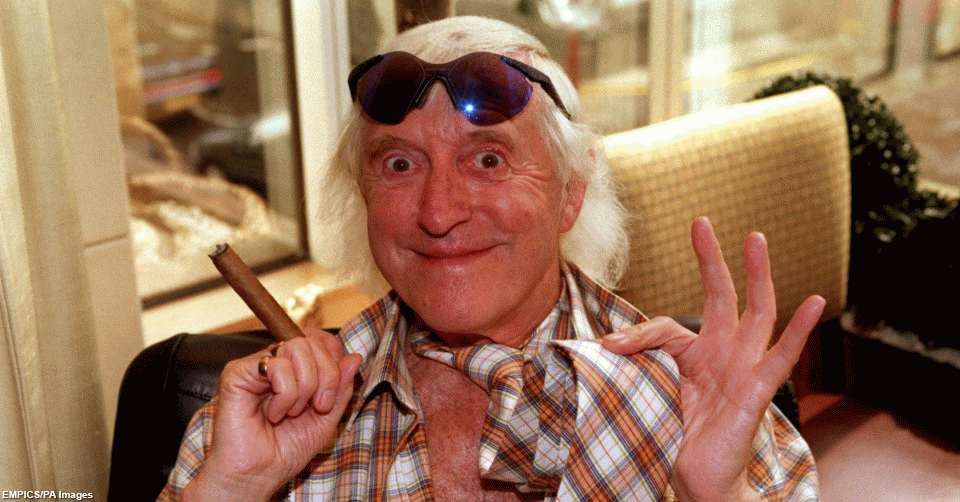How ‘recovered memories’ fuelled the paedo panic
The UK justice system needs to face facts: 'recovered memories' simply aren't credible.

Want unlimited, ad-free access? Become a spiked supporter.
Last month, the psychology department of Goldsmiths College in London hosted a lecture by Professor Elizabeth Loftus on memory research, and what it tells us about the value of human recollection, entitled ‘The memory factory’. Loftus is an American cognitive psychologist at the University of California, Irvine. She has spent the past 40 years conducting trials on how memory works (or doesn’t work), as well as presenting expert witness testimony in several high-profile court cases.
It is a tribute to Loftus’ exceptional determination and expertise that she was not derailed in her work by the bitter ‘memory wars’ of the 1990s, which arose as a result of US feminist campaigners and trauma therapists insisting on the veracity of ‘recovered memories’ of abuse. This notion of recovered memory remains hotly contested. As recently as 2012, Loftus convinced a court that the theory of recovered memory is outwith medical orthodoxy (1). Nevertheless, Loftus has been the subject of professional complaints and has received death threats.
Dangerous work
As one commentator notes, to work in this field you need ‘skin as thick as permafrost and caller ID on the phone’. Loftus is not the only academic to be pilloried for her work in this field. Susan Clancy, a young cognitive psychologist working at Harvard in the mid-1990s, was viciously attacked after she began laboratory research into how people might be prone to false memories. Part of the cohort of subjects who presented at Harvard’s Memory Laboratory claimed to have been the victim of childhood abuse, even though they had no actual memory of being abused! This was intriguing research terrain (2).
But Clancy received bags of hate mail, was shunned by her graduate students, and even found herself giving guest lectures to empty halls. Harvard encouraged her and her mentor, Professor Richard J McNally, to switch the focus of their research on to people who believed they were abducted by aliens: a less politically sensitive class of victim. Clancy accepted a visiting professorship in Nicaragua, where she still works in the field of consumer behaviour, though she did succeed in publishing her own original work in the field of recovered memory: Abducted (2005) and The Trauma Myth (2010).
Loftus, by contrast, was not run out of town so outrageously: as an older woman, she had been involved in research going back to the 1970s, and had thus built up a solid string of publications by the time things turned ugly in the 1990s. One of her earliest studies of memory paradigms examined how misinformation, provided after an event is witnessed, can cause the witness to recall the event differently. Memory is reconstructive, and people can all-too-easily process new information after the fact, and then re-attribute this new information to their original experience. Memory, her research shows, can be rewritten.
Tell ’em what to say
Similar findings have been replicated in studies up to the present. In her talk, Loftus cited a 2013 study by psychiatrist Dr Charles Morgan from the Yale Medical School of a crack troop of US soldiers undergoing survival-school training. This entailed a real-life, high-stress exercise of being hunted, captured and then aggressively interrogated by ‘enemy’ combatants, after which they were ‘rescued’ by friendly survival-school staff.
In the debrief interviews, some soldiers were given false information about their interrogator’s appearance; were asked leading questions such as ‘describe the weapon/uniform worn by your interrogator’, and were shown a doctored video which (incorrectly) showed the survival-school staff, whom the soldiers knew, as carrying automatic weapons when, in fact, they did not. The results were dramatic. In the cohort which was given the misinformation:
– 84 per cent misidentified their interrogator;
– 27 per cent wrongly said their interrogator had a weapon;
– 85 per cent wrongly stated their interrogator wore uniform;
– Over 50 per cent wrongly stated that school staff carried automatic weapons.
Another memory paradigm, which Loftus discussed in her lecture, is one where people claim to remember events that are wholly imaginary. In her classic ‘Lost in the Mall’ study, in which people were given a description of a child lost in a mall, about a quarter of participants came to believe that this experience had happened to them. And at (arguably) a more harmless level, she and her team have successfully planted false memories in people relating to food. Some people have been persuaded to avoid strawberry ice cream, believing it once made them sick as a child; others have been impelled to avoid imbibing vodka. Potentially, this kind of research may provide a way to cure addictions and obesity.
Memory and law
But memory is far more problematic, when deployed in a forensic context. Who is more believable, and who decides? A person’s liberty, or a child’s future, may depend on this. According to Loftus, there is no way to distinguish a false memory from a true one. A false memory can be detailed, it can be recounted convincingly, and it can carry the same emotional charge as an accurate depiction of real experience. Loftus’ take-home message is that human memory is unreliable, unless supported by independent corroborating evidence. This message is diametrically opposed to the increasingly victim-centric approach of the UK justice system, currently in thrall to the politically correct ‘I believe her’ camp.
Wisely, Loftus steered clear of volunteering any observations about the implications of her work for the UK’s mounting obsession with historic abuse allegations. However, it is disturbing that the numerous authors of the growing piles of reports into Savile et al, abjectly fail to confront the problems of memory, or the lessons of memory research. This is a serious flaw in their approach. The unprecedented media frenzy over Savile, succeeded by wild accusations about VIP paedo-murder ‘rings’, should have flagged up to any intelligent person the obvious dangers of accepting tales of woe from long ago, uncritically. But this has not happened.
Instead, most journalists have shown an almost willful ignorance of modern memory science, in their stampede to propagate sensational stories that sell. Even more reprehensibly, Britain’s courts have been remiss in their refusal to face up to this problem, while simultaneously refusing to subject the constant special pleading from the victim lobby, which now includes the police and the Crown Prosecution Service (CPS), to proper analytical scrutiny. The outcome has been a serious unbalancing of the UK’s justice system towards a presumption of guilt, and a cynical willingness to risk innocent people’s liberty.
Barbara Hewson is a barrister. Her views here are personal.
Footnotes:
(1) John Doe vs Archbishop of Saint Paul and Minneapolis and Diocese of Winona, State of Minnesota Supreme Court, A10-1951, 25 July 2012, pp12-13.
(2) ‘False memories of past lives and space alien abduction’, by Richard J McNally, Karolinska Institute, 29 January 2014.
You’ve hit your monthly free article limit.
Support spiked and get unlimited access.
Support spiked and get unlimited access
spiked is funded by readers like you. Only 0.1% of regular readers currently support us. If just 1% did, we could grow our team and step up the fight for free speech and democracy.
Become a spiked supporter and enjoy unlimited, ad-free access, bonus content and exclusive events – while helping to keep independent journalism alive.
Monthly support makes the biggest difference. Thank you.










Comments
Want to join the conversation?
Only spiked supporters and patrons, who donate regularly to us, can comment on our articles.